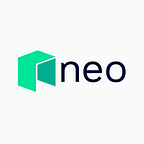Neo’s Research Paper on Random Number Generation Accepted by DSN
A team of researchers from Neo Global Development (NGD) and R3E, two developer communities in the Neo ecosystem, collaborated on a research paper proposing a groundbreaking solution for generating random numbers on the blockchain. This solution aims to eliminate the risks of manipulation and predictability. The paper was accepted by Dependable Systems and Networks (DSN) and is going to be presented at the 54th Annual IEEE/IFIP International Conference on Dependable Systems and Networks in June. This random number generation solution will benefit all BFT consensus blockchains, including Neo N3 and Neo X.
The existing problem with random number generation on blockchain, and Neo’s solution
Random number generation plays a crucial role in decentralized applications (dApps) on blockchains, such as decentralized finance (DeFi) and non-fungible tokens (NFTs). However, their generation faces challenges due to the deterministic and decentralized nature of blockchains, risking smart contract security and ecosystem stability. Adversaries may be able to predict or influence the random number value based on public information on the chain. In 2018, a series of lottery dApps on the EOS blockchain were compromised because the hacker successfully predicted the winning numbers or outcomes, which should have been purely random, causing hundreds of thousands of dollars in losses.
There have been existing solutions, such as Oracles, using a “commit-execute” model to generate random numbers on a blockchain, such as Chainlink’s VRF solution. However, these commit-execute approaches consume time, transaction fees, and storage, and require a trusted third party to manage them, which contradicts the decentralized nature of blockchain.
Neo’s team proposes a novel random number provider (RNP) protocol for smart contracts on the blockchain, eliminating dependencies on traditional commit-execute approaches. This secures and optimizes random number applications in dApps, fostering the creation of more dependable, robust systems. According to the research paper, the new approach significantly enhances response times and security for random number queries in smart contracts, cutting request fees by at least 89% and reducing on-chain data by 76.4% compared to existing methods.
Furthermore, the paper systematically identifies potential random number-related attacks on smart contracts, where attackers may reverse contract operations when randomness is unfavorable, and discusses the security requirements.
The inception of the research paper among Neo core developers and blockchain enthusiasts
This paper’s inception dates back to 2021 when a group of blockchain enthusiasts, led by Erik Zhang, Founder of Neo and author of dBFT, gathered to discuss the issue of generating random numbers on the blockchain in the most intuitive and efficient way. Including the seven authors documented at the end of the paper, a total of 12 blockchain experts from NGD, R3E, Purdue University, University of Delaware, Hunan University, SusTech, Wayne State University, and PolyU contributed to the birth of the innovative random number provider.
Papers submitted to DSN undergo a rigorous peer-review process by experts in the field. This ensures that only high-quality research is presented at the conference. The paper surpassed over 80% of the candidates and was accepted by DSN.
Neo has been driving blockchain innovation forward since its inception, and has a history of publishing research papers on world-renowned academic platforms. Two notable examples include “SPEEDSTER: An Efficient Multi-party State Channel via Enclaves,” co-written by Jimmy Liao from R3E, and “Challenges of PBFT-Inspired Consensus for Blockchain and Enhancements over Neo dBFT,” co-written by Igor M. Coelho, Vitor N. Coelho, and Wang Yong Qiang from Neo Research. These papers demonstrate Neo’s contributions to not only blockchain, but computer science in general.
The acceptance into DSN and its further impact entices
The International Conference on Dependable Systems and Networks (or DSN) is an annual conference on topics related to dependable computer systems and reliable networks. It is considered to be right next to the “Top 4” in the field of network and information security, ACM Conference on Computer and Communications Security (ACM CCS), IEEE Symposium on Security and Privacy (IEEE S&P), Network and Distributed System Security (NDSS) Symposium, and USENIX Security.
This year, the 54th Annual IEEE/IFIP International Conference on Dependable Systems and Networks is going to be held in Brisbane, Australia, from June 24 to 27. Jimmy Liao, the first author of the research paper and one of Neo’s core developers, will attend the conference and present this paper in front of the Organizing Committee and all attending academics. The paper will also be listed in the conference proceedings.
As this novel approach proposed by NGD and R3E will benefit all blockchains using the BFT consensus mechanism, it will have positive implications for both Neo N3 and the developing Neo X in the future.
About Neo
Founded in 2014, Neo is an open-source, community-driven blockchain platform designed to welcome developers into the Smart Economy. By enabling developers to digitize and automate the management of assets through smart contracts, Neo is built to realize the optimized digital world of the future. As the most developer-friendly blockchain, Neo meets developers where they are by integrating seamlessly with the world’s most widely used languages and tools and providing the most feature-complete blockchain platform for building full-stack decentralized applications. With native support for powerful infrastructure including decentralized storage, oracles, and domain name service, Neo is the ideal foundation for developers to build the next generation Internet.
Official Website | Twitter | Discord | Telegram | Facebook | Reddit | YouTube
